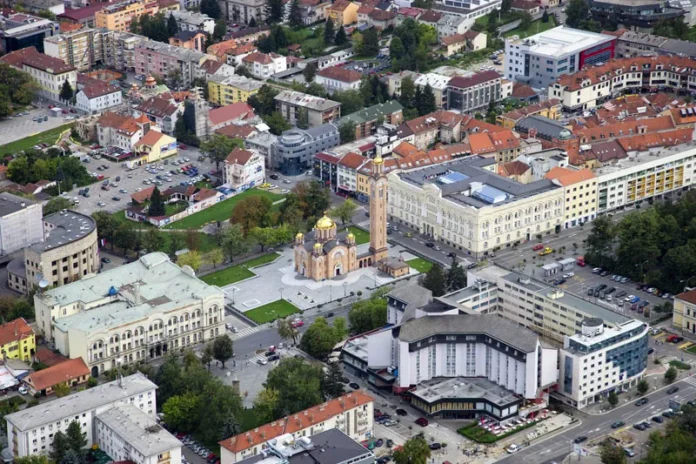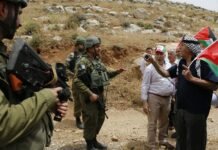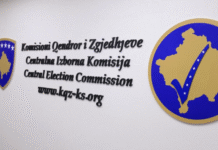Context and Catalyst for Early Elections
The political landscape of Republika Srpska (RS) has undergone significant shifts, particularly leading to the upcoming early elections. A crucial catalyst in this scenario was a court ruling impacting Milorad Dodik, a key political figure and the current president of RS. The ruling resulted in a prison sentence for Dodik, which was subsequently converted into a financial fine along with a political ban. This development has profound implications for governance in RS and ignites a debate on the rule of law within the region.
Initially, the authorities in Republika Srpska responded to the verdict with a strong rejection. This reaction reflected the prevailing political sentiment among Dodik’s supporters, who viewed the court’s decision as a politically motivated attack rather than an objective ruling. As time progressed, however, there appeared to be a gradual acceptance of the legal determinations made by the judiciary. This shift hints at an internal acknowledgment of the need for adherence to the law, albeit under significant pressure from both domestic and international actors.
In the backdrop of this political turbulence, the dynamic relationship between RS authorities and state institutions has been tested. International observers and local governance advocates have called for a commitment to the rule of law, urging RS authorities to recognize the validity of the court’s ruling. Such advocacy has highlighted an existing institutional rift in RS, as government officials have been caught navigating between their constituents’ sentiments and the expectations set forth by international norms.
The tension between maintaining political power, as embodied by Dodik, and embracing a commitment to law and governance has become increasingly pronounced. This precarious balancing act may contribute to the need for early elections, representing a significant moment in RS’s political evolution. As these elections approach, the political ramifications of the court ruling are likely to shape the electoral strategies employed by various political factions.
Candidates and Political Dynamics
The upcoming elections in Republika Srpska are poised to unfold within a multifaceted political landscape, heavily influenced by the longstanding figure Milorad Dodik. As the leader of the Alliance of Independent Social Democrats (SNSD), Dodik’s control extends beyond the official limits, subtly shaping the electoral process. Among the key candidates representing the SNSD, Siniša Karan stands out as a significant figure often dubbed the ‘Manchurian candidate’ due to his close allegiance with Dodik. Karan’s position reflects not only the aspirations of the ruling party but also the persistent influence exercised by Dodik, even amidst formal prohibitions on such actions.
On the opposing front, Branko Blanuša emerges as the most formidable contender among opposition candidates. His candidacy symbolizes a united front against the ruling party, as he seeks to galvanize voters disillusioned by Dodik’s enduring grip on power. Blanuša’s platform aims to address key societal issues, thereby appealing to a demographic eager for change and rejuvenation in governance.
The political dynamics during this election cycle are further complicated by the presence of multiple candidates vying for opposition votes. This fragmentation poses a challenge for Blanuša and his supporters, as the division of votes among various opposition factions may inadvertently bolster Dodik’s prospects of re-election. In a context where the division of opposition support is evident, the implications for electoral outcomes become increasingly convoluted. The interference of established political figures such as Dodik, coupled with the potential for split votes, creates a complex battleground for all parties involved. As candidates navigate these challenges, the broader implications for governance and political representation in Republika Srpska will be critical themes for analysis in the run-up to the elections.
Challenges and Risks of Electoral Manipulation
The political landscape in Republika Srpska (RS) is significantly influenced by the potential for electoral manipulation. Historical election outcomes often illustrate a pattern of challenges that can undermine the integrity of the electoral process. Previous elections have been marred by allegations of voter intimidation, ballot stuffing, and other illicit activities aimed at favoring certain political entities. These issues not only compromise the democratic foundation of the region but also raise concerns regarding the efficacy of governance and public trust.
Local mayors play a crucial role in the electoral framework, acting as pivotal figures in mobilizing support and overseeing election protocols. Their influence can greatly affect the success of opposition candidates, as these officials often hold the power to shape electoral dynamics at the grassroots level. The intertwining of local governance and electoral processes can create environments ripe for manipulation—especially in areas where the line between local administration and political campaigning is blurred. The involvement of mayors can either enhance or diminish the prospects for fair elections, depending on their commitment to upholding democratic standards.
Moreover, the legal implications surrounding current electoral practices warrant examination. Existing laws and regulations may not provide adequate safeguards against manipulation, leaving room for exploitation. This could foster a climate of uncertainty as international observers and local constituents alike express growing concerns over the transparency of the upcoming elections. Heightened international scrutiny is vital, especially in light of fears that similar tactics employed in prior elections may resurface. The insights of various watchdog organizations during this period can serve as crucial indicators of the electoral climate in RS, ultimately affecting the legitimacy of election outcomes.
Implications of Election Outcomes and the Role of the International Community
The upcoming elections in Republika Srpska present a crossroad that could significantly reshape the region’s political landscape. A victory for the ruling party, SNSD led by Milorad Dodik, would likely consolidate its grip on power, promoting policies aimed at strengthening the existing governance framework. This outcome could foster a semblance of political stability, as SNSD has advocated for continuity in both domestic and foreign policy. Additionally, such a victory may facilitate economic initiatives focused on infrastructure development, bringing a modicum of stability to the region. However, it could also entrench a confrontational approach towards oppositional parties, potentially amplifying societal divisions and curbing democratic discourse.
Conversely, a win for the opposition party, SDS led by Mirko Blanuša, would signal a shift towards a more pluralistic political environment, wherein differing viewpoints could be brought to the forefront. This outcome might enhance prospects for dialogue and greater collaboration among political entities in Republika Srpska, fostering a culture of consensus and cooperative governance. However, it could also provoke backlash from SNSD supporters, leading to heightened political tensions. If Blanuša’s party adopts reforms to address lingering grievances among disenfranchised citizens, it may establish a more reconciliatory political atmosphere, which is essential for long-term stability.
The role of the international community in this electoral process holds paramount importance. Its involvement in monitoring the elections is critical to ensuring transparency, fairness, and adherence to democratic principles. The presence of international observers can deter potential malpractice and instill confidence in voters. Moreover, ongoing diplomatic efforts may be necessary post-elections to encourage peaceful dialogue between competing factions, paving the way for an inclusive political environment. International advocacy for a balanced political framework is vital for sustaining stability and democratic integrity in Republika Srpska.



